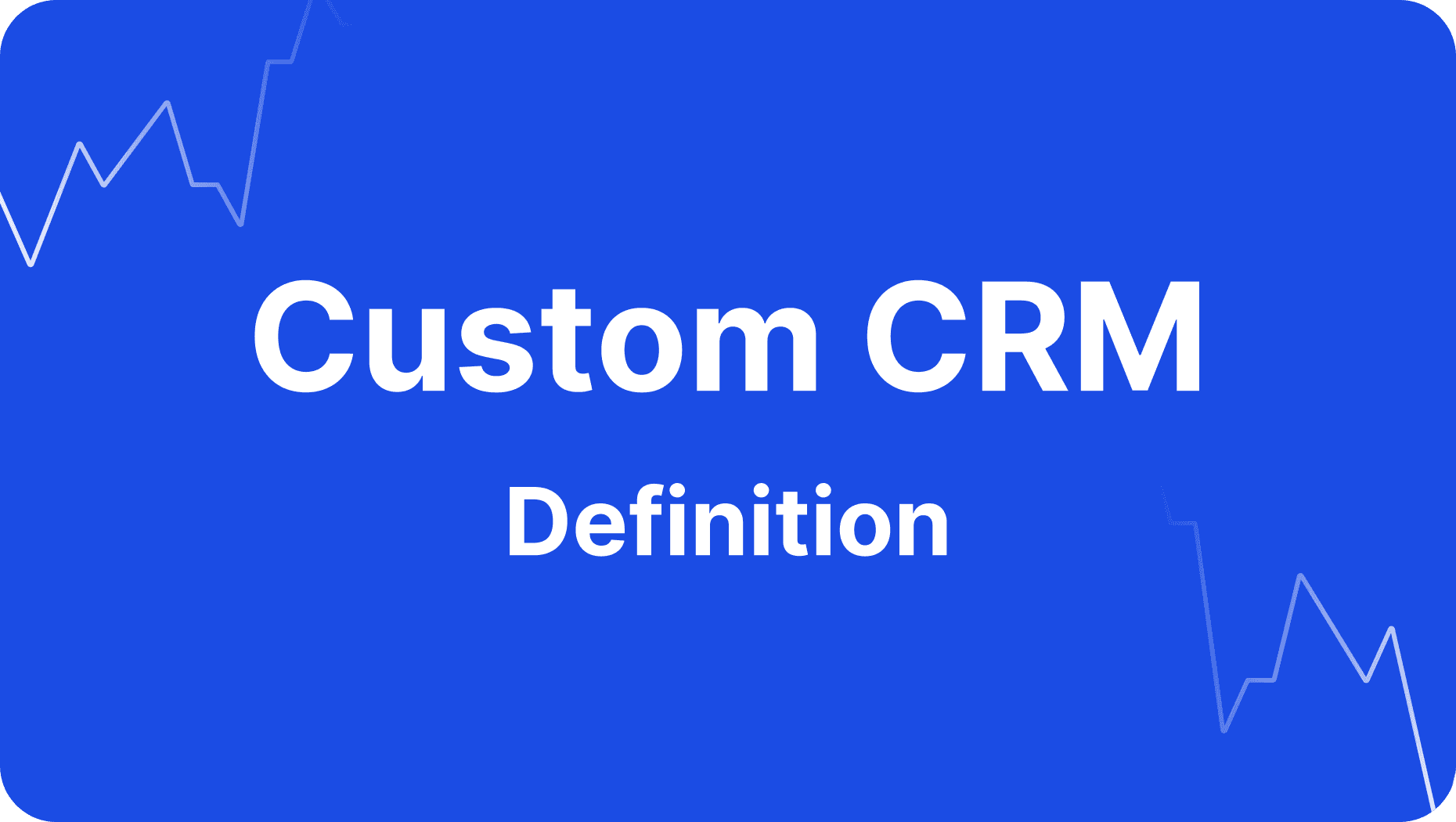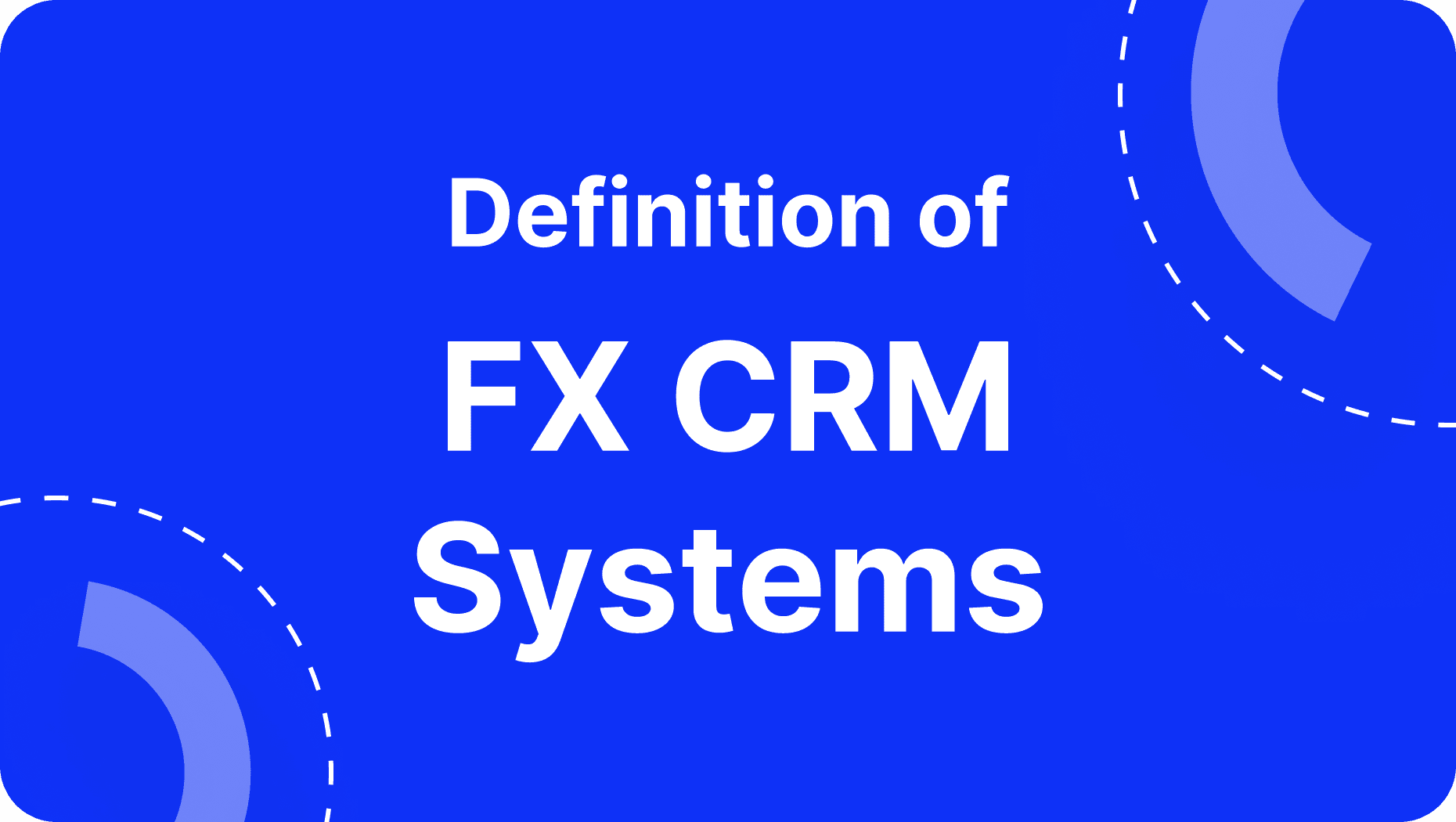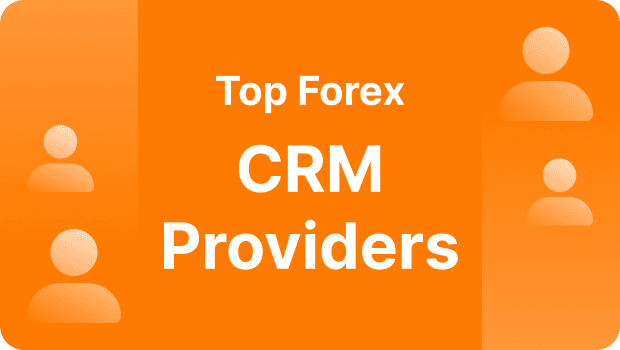Share
0
/5
(
0
)
At this level, brokers have a unique ability to manage their clients' relationships. To better serve traders, they create a Forex CRM system tailored to their individual goals, approaches, and visions for the future.
Trading platforms, instruments, and trade assets may all be interchanged in the same manner as financial instruments can. An effective client relationship management system may help a broker acquire a significant advantage in the marketplace, as well as provide positive financial results.
To better understand and interact with customers, traders, and novice market participants who are interested in trading on the broker's platform and to strengthen relationships with existing customers and clients is possible with the use of customer relationship management software.
What is CRM in Forex Market?
Forex brokers use CRM software to manage all aspects of their company from a single platform. Forex CRM, and Forex broker solutions for platforms management are often used interchangeably by specialists in the industry. A brokerage's operating system is a good analogy. Cloud-based or built in-house by a broker's own team of engineers are the most common options for SaaS (software as a service) solutions.
The following are some common uses for it:
Web-based trading platforms and online forms.
Your website has to make it easy for customers to sign up for an account right from the get-go.A customer-oriented website.
Your consumers must be able to manage their accounts and deposit money into them in order for you to be successful.Specific sales and marketing tools.
These tools are aimed at increasing customer acquisition and retention.Keeping track of business partners tool.
Working with and compensating brokers and money managers who refer clients to your business is essential.Automated processes in the back office.
Account creation and general operations management for a smooth workflow.Checks and balances to ensure legality.
The standard compliance reports, KYC and AML document storage, and other regulatory needs-specific features are all designed to fulfill your regulatory requirements.Monitoring and reporting of revenues.
The creation of forex-specific data and statistics that may be easily accessed by management teams.
Why do I need a CRM System Tailored to my FX Brokerage Business's Specific Needs?
For Forex brokers, a customer relationship management system is the fundamental operating system that enables the smooth running of your business on a daily basis. You're free to do anything by hand if you'd like. Even if a trader seems to be a good fit for your organization, it's important to take into account the amount of time it will take and the risk of human error before making a decision.
Consider the following example to illustrate why it is critical to find a Forex CRM solution to manage and automate all aspects of your business's daily operations:
Bringing in fresh traders
The Forex CRM platform powers marketing, sales, and industry collaborations.
Consider your sales and marketing teams, independent financial advisors (IFAs), and money managers as your clients' first point of contact. You'll need a system in place to monitor interactions with potential customers across all of your revenue streams. Sales processes must be managed and monitored to produce leads, and IBs and money managers must be paid correctly and on schedule.
You'll produce tens of thousands of prospects via your funnel. In a single week, you may be required to keep track of several thousand potential clients in order to determine who made deposits, paid your partners, and established accounts. To identify a user, email addresses, bank receipts, spreadsheets, and platform data may all be utilized.
It is critical that you automate all components of your revenue stream, including messaging, link tracking, attribution, and account setup. All of your trading connections should be handled instantly, leaving no possibility for human error. This may be found in an FX CRM.
New client onboarding
Taking care of consumers via the completion of KYC and anti-money laundering checks.
Your brokerage's back-office staff is responsible for protecting your company against fraudsters, money laundering, and other legal entanglements throughout the onboarding process for new customers. If an account associated with terrorist groups is used to launder money, it might have major ramifications for your business if one of your employees authorizes it unwittingly. Due to their workload, your back office personnel processed the application manually, hurrying to finish it without properly validating the traders' credentials. In this case, the authorities will almost certainly shut down your business within a few hours.
When you automate data gathering via your online forms, CRM for Forex system, and documentation center, your back office workers will have the information they need to justify their decisions about who to approve and why. Processes for compliance and anti-money laundering have been streamlined.
Third-party compliance verification services may be linked directly into your foreign exchange CRM, significantly expediting the onboarding process. These services give automated or manual flags for your back office workers to review. They examine and score applications based on critical compliance criteria. You may rest easy knowing that the right decisions are being made at all times for your company's back office, courtesy of a CRM.
Account interactions may be maintained
The CRM system manages deposits, withdrawals, and communications.
So you've acquired clients and established legitimate accounts. As a result, you must now enable your traders to transfer funds and begin trading immediately. However, how do they deliver the funds to you? Which payment method should you use? At this stage, payment service providers (PSPs) may assist in the collection of funds. However, manually collecting money from a variety of sources is inconvenient. There are no batching options, and the manual user experience is vexing. Your consumers are turned off by the time and effort involved in funding their accounts or making their first contributions. It's as if they're placing a hurdle in your path.
What is necessary is an account management website where your traders may access their accounts, interact with you, and deposit cash. This capability is already included in a platform for broker operations.
The deposit procedure is expedited as a consequence of these PSP interfaces. Traders may skip visiting a bank and waiting several days for a transfer to reach their trading accounts using this strategy. Deposits may be done within seconds after account approval when using a CRM for Forex brokers and connected to a client site. When they have a strong urge to trade, they may initiate the transaction immediately.
When brokers launch their systems, they often choose a number of well-known PSPs and connect them to the system. Additionally, your brokerage may require the usage of additional regionally specialized payment service providers in specific circumstances (PSPs).
Customization of the system is a long-term investment. This strategy enables you to collect deposits in the manner suggested for that location.
Merchants retention
Relationship building and resolution of conflicts with customers.
The more time goes by, the more likely it is that you'll want to keep your customers on the platform and provide them with a service. Increased advertising effectiveness and a better return on investment may be achieved via customer retention.
Retaining traders, on the other hand, is a challenge. It's never been easy for anybody to reconcile their feelings about money with their financial situation. However, if you know your customers and their habits, you'll have an easier time navigating. Recognize the system's warning flags for at-risk accounts and for possible trader abandonment. Even the largest organizations can't keep track of tens of thousands of connections by hand in a spreadsheet. Attempting to handle all of those accounts at the same time is impossible. If your staff is taking too long to answer, your customers will begin to feel left out and frustrated.
Even while ordinary CRMs that aren't designed for financial markets may help you keep track of conversations, they won't be able to keep tabs on actual trading or deposit operations. In terms of their trading style, choices, and preferences, there is no clear image. Giving your retention specialists a complete view of the client by providing an integrated solution that integrates data from all of your trade servers and portal interactions is the most successful method. Anyone on the team can quickly see which signals the traders are emitting and when it is acceptable to approach them for further deposits or to adjust their offers in this way. The best time to recommend joining a managed program rather than leaving your brokerage may also be determined by this.
Providing extended reports
Revenue and data analysis are used to assist in making decisions.
So far, things are going swimmingly for you at your new brokerage business. For a few months, things progress, but then something unexpected happens. It's also possible that your IBs have received manual payments by mistake from someone else. Infuriated, they've made a threat to move to another provider. Since your manual procedures are cluttered with paperwork red tape and lack even a sales revenue chart, you have no idea how to fix it. Finding out why growth slowed down or what happened to that payment will be very tough.
Where can I find a Forex Customer Relationship Management System?
We've now seen how important a Forex CRM system is to a trading company. It is conceivable to build a system in-house over the next few years, but this would need a significant initial capital investment as well as continuous maintenance expenditures. Alternatively, you might choose a well-established SaaS solution that has been shown to be cost-effective, is used by industry leaders, is continually updated and secure, and can be put into operation in a matter of minutes after installation.
Take, for example, B2Broker’s B2Core, which has assisted hundreds of brokers in breaking into the market and growing their businesses into globally known enterprises.
Please get in touch with us if you want to support in identifying the most appropriate tools for your company, as well as insight into what your teams require to perform at their highest levels of efficiency. We'd be pleased to be of service to you.
Read also





